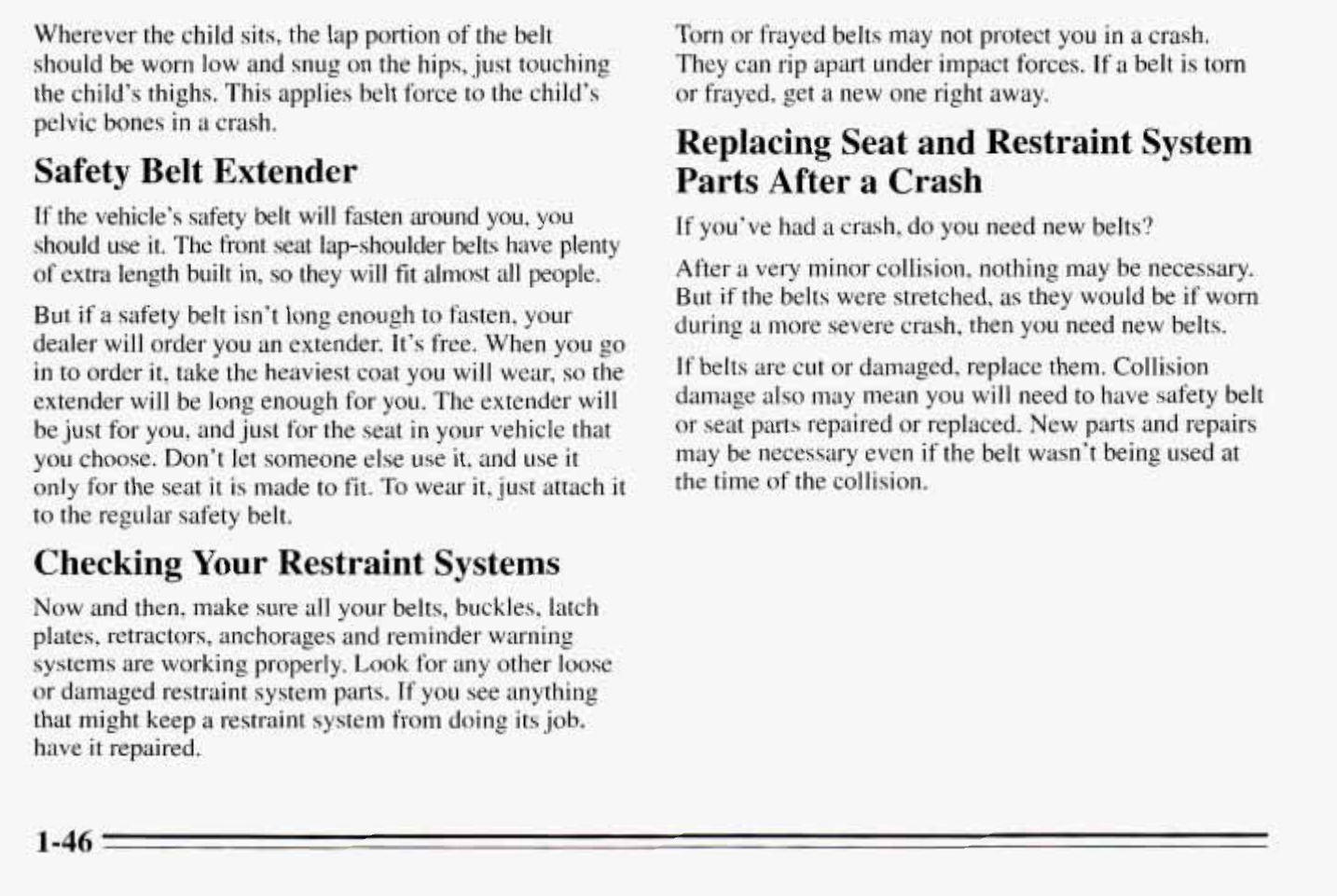
Wherever the child sits, the lap portion of
the
belt
should be worn low and snug
on
the hips, just touching
the child’s thighs. This applies belt force
io
the child’s
pelvic bones
in
a
crash.
Safety Belt Extender
If
the
vehicle’s safety belt
will
fasten around you, you
should
use
it.
The front. seat lap-shoulder belts have plenty
of extra length built
in,
so
they
will fit almost all people.
But
if
a safety belt isn’t long enough to fasten, your
dealer
will
order
you
an extender. It’s free. When
you
go
in
to
order
it,
take the heaviest coat you will wear,
so
the
extender will be long enough for
you.
The extender will
be just for you, and just for
the
seat
in
your vehicle that
you choose. Don’t let someone else use
it,
and use
it
only for
the
seat
it
is
made
to
fit.
To
wear
it,
just attach
it
to
the regular safety belt.
Checking Your Restraint Systems
Now and then, make sure all your belts, buckles, latch
plates, retractors, anchorages and reminder warning
systems are working properly.
Look
for any other
loose
or damaged restraint system parts. If you see anything
that might keep
a
restraint system from doing its job,
have
it
repaired.
Torn
or
frayed belts may
not
protect you in
a
crash.
They can rip apart under impact forces.
If
a belt
is
torn
or frayed, get
a
new one right away.
Replacing Seat and Restraint System
Parts After a Crash
If
you’ve had
a
crash, do you need new belts?
After a very minor collision, nothing may be necessary.
But
if
the belts were stretched,
as
they would be if worn
during
a
more severe crash, then you need
new
belts.
If
belts are cut or damaged, replace them. Collision
damage also may mean you will need
to
have safety belt
or
seat parts repaired or replaced. New parts and repairs
may be necessary even if the belt wasn’t being used at
the time of the collision.
1-46
.
~~


















